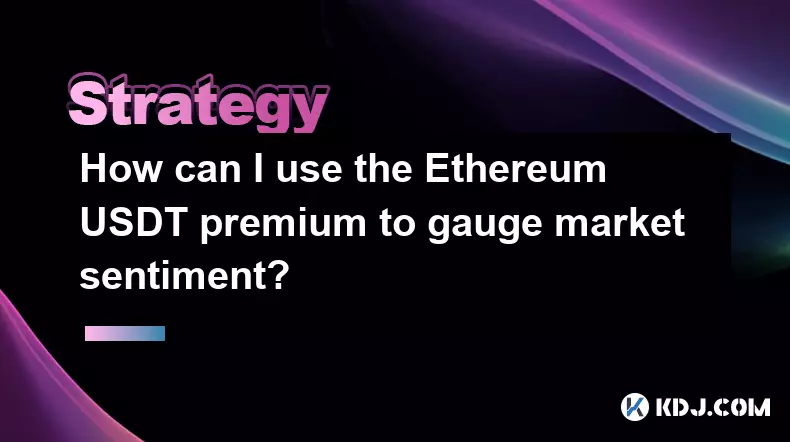-
 bitcoin
bitcoin $122025.899241 USD
-2.12% -
 ethereum
ethereum $4488.068729 USD
-4.11% -
 bnb
bnb $1315.348019 USD
8.65% -
 tether
tether $1.000457 USD
0.03% -
 xrp
xrp $2.875326 USD
-3.69% -
 solana
solana $222.043604 USD
-4.07% -
 usd-coin
usd-coin $0.999682 USD
0.00% -
 dogecoin
dogecoin $0.249887 USD
-5.62% -
 tron
tron $0.337379 USD
-2.59% -
 cardano
cardano $0.827763 USD
-5.06% -
 hyperliquid
hyperliquid $45.774531 USD
-2.43% -
 chainlink
chainlink $22.079309 USD
-5.87% -
 ethena-usde
ethena-usde $1.000156 USD
0.02% -
 sui
sui $3.482566 USD
-3.57% -
 stellar
stellar $0.386982 USD
-4.92%
How to make money investing in Bitcoin
Understanding the basics of Bitcoin, such as its decentralized nature and immutable blockchain, is essential for successful investment.
Jan 08, 2025 at 01:50 pm

How to Make Money Investing in Bitcoin
Key Points:- Understanding the Basics of Bitcoin
- Choosing a Crypto Exchange
- Creating a Bitcoin Wallet
- Buying Bitcoin
- Holding and Storing Bitcoin
- Trading Bitcoin
- Mining Bitcoin
- Lending Bitcoin
1. Understanding the Basics of Bitcoin
Bitcoin, the world's first decentralized digital currency, has revolutionized the financial landscape. Its unique characteristics, such as scarcity, immutability, and transparency, have captured the attention of investors and users around the globe.
To successfully invest in Bitcoin, you must first understand its fundamentals. Bitcoin operates on a blockchain network, a distributed ledger that records every transaction securely and transparently. This system eliminates the need for intermediaries, providing anonymity and cost savings.
2. Choosing a Crypto Exchange
Crypto exchanges are online platforms that facilitate the buying, selling, and trading of Bitcoin. When selecting an exchange, consider factors such as security, fees, trading options, and reputation.
Some reputable crypto exchanges include:
- Coinbase: A beginner-friendly platform with user-friendly interfaces and a wide range of payment methods.
- Binance: The world's largest crypto exchange by trading volume, offering advanced trading tools and low fees.
- FTX: A derivatives-focused exchange known for its low trading fees and innovative products.
- Kraken: A trusted exchange with high security measures and a range of order types.
- Gemini: A licensed exchange compliant with US regulations, emphasizing security and custody services.
3. Creating a Bitcoin Wallet
A Bitcoin wallet is a software or physical device that stores your Bitcoin and allows you to send and receive funds. Wallets can be custodial, where a third party manages your private keys, or non-custodial, where you are solely responsible for your keys.
Consider the following factors when choosing a Bitcoin wallet:
- Security: Ensure the wallet has strong encryption and security features to protect your Bitcoin.
- Accessibility: Choose a wallet that is compatible with your devices and operating systems.
- Backup and Recovery: Opt for a wallet that allows you to back up your recovery phrase securely.
- Multi-currency Support: Consider a wallet that supports multiple cryptocurrencies if you plan to hold various digital assets.
4. Buying Bitcoin
Once you have chosen an exchange and wallet, it's time to buy Bitcoin.
- Sign up for an account on the exchange and complete the required identity verification process.
- Link your preferred payment method, such as a bank account or credit card.
- Place an order to buy Bitcoin at the desired market price or limit price.
- Once the transaction is complete, your Bitcoin will be transferred to your wallet.
5. Holding and Storing Bitcoin
Storing Bitcoin securely is crucial to protect your investment. Use a non-custodial wallet where you control your private keys. Consider storing your Bitcoin in multiple wallets, such as a hardware wallet and a software wallet, for enhanced security.
- Always keep your recovery phrase secret and securely backed up.
- Monitor your wallet regularly for any suspicious activity.
- Consider using a multi-signature wallet for added security, requiring multiple keys to authorize transactions.
6. Trading Bitcoin
Trading Bitcoin involves buying and selling the cryptocurrency on crypto exchanges to capitalize on price fluctuations.
- Analyze market trends and identify potential trading opportunities.
- Choose a trading strategy that aligns with your risk tolerance and investment goals.
- Consider using technical indicators and fundamental analysis to inform your decisions.
- Manage your risk by using stop-loss orders and position sizing strategies.
7. Mining Bitcoin
Bitcoin mining is the process of verifying and adding Bitcoin transactions to the blockchain. Miners compete to solve complex mathematical problems to earn rewards in Bitcoin.
- Specialized hardware called ASIC miners is typically used for Bitcoin mining.
- Mining pools allow individuals to pool their resources and share the rewards of successful mining efforts.
- Mining difficulty adjusts regularly, impacting the rewards and profitability of mining.
- Consider the cost of electricity, hardware, and maintenance before investing in mining.
8. Lending Bitcoin
Lending Bitcoin involves lending your Bitcoin to borrowers on peer-to-peer lending platforms in exchange for interest.
- Research different lending platforms to compare rates and terms.
- Understand the risks associated with lending Bitcoin, including the possibility of default.
- Diversify your loan portfolio to reduce the impact of individual defaults.
- Monitor your loans regularly and adjust your strategies as needed.
FAQs
What are the risks involved in investing in Bitcoin?Bitcoin is a volatile asset, and prices can fluctuate significantly. Other risks include hacking, scams, and regulatory uncertainty.
What is the best way to store Bitcoin?Non-custodial hardware wallets provide the highest level of security for storing Bitcoin.
How much Bitcoin should I invest in?Only invest what you can afford to lose and diversify your portfolio across multiple investments.
What are the tax implications of owning Bitcoin?Tax laws vary depending on jurisdiction. Consult a tax professional for specific advice.
What is the future outlook for Bitcoin?The future of Bitcoin is uncertain, but many experts believe it has the potential for long-term growth due to its unique characteristics and increasing adoption.
Disclaimer:info@kdj.com
The information provided is not trading advice. kdj.com does not assume any responsibility for any investments made based on the information provided in this article. Cryptocurrencies are highly volatile and it is highly recommended that you invest with caution after thorough research!
If you believe that the content used on this website infringes your copyright, please contact us immediately (info@kdj.com) and we will delete it promptly.
- BlockDAG, DOGE, HYPE Sponsorship: Crypto Trends Shaping 2025
- 2025-10-01 00:25:13
- Deutsche Börse and Circle: A StableCoin Adoption Powerhouse in Europe
- 2025-10-01 00:25:13
- BlockDAG's Presale Buzz: Is It the Crypto to Watch in October 2025?
- 2025-10-01 00:30:13
- Bitcoin, Crypto, and IQ: When Genius Meets Digital Gold?
- 2025-10-01 00:30:13
- Stablecoins, American Innovation, and Wallet Tokens: The Next Frontier
- 2025-10-01 00:35:12
- NBU, Coins, and Crypto in Ukraine: A New Yorker's Take
- 2025-10-01 00:45:14
Related knowledge

Practical parameter settings for a Bitcoin multi-timeframe moving average system
Sep 18,2025 at 10:54pm
Optimizing Timeframe Combinations for Bitcoin Trading1. Selecting appropriate timeframes is crucial when building a multi-timeframe moving average sys...

How can I filter out false breakouts in Dogecoin high-frequency trading?
Sep 22,2025 at 01:00am
Understanding False Breakouts in Dogecoin Trading1. A false breakout occurs when Dogecoin's price appears to move beyond a defined support or resistan...

Techniques for identifying tops and bottoms in the Bitcoin on-chain NVT model
Sep 20,2025 at 07:54pm
Understanding the NVT Model in Bitcoin Analysis1. The Network Value to Transactions (NVT) ratio is often described as the 'P/E ratio' of the cryptocur...

What does the surge in open interest in Bitcoincoin futures mean?
Sep 20,2025 at 11:18pm
Understanding the Surge in Dogecoin Futures Open Interest1. A surge in open interest within Dogecoin futures indicates a growing number of active cont...

How can I use the Ethereum USDT premium to gauge market sentiment?
Sep 18,2025 at 11:55pm
Understanding the Ethereum USDT Premium1. The Ethereum USDT premium refers to the price difference between USDT (Tether) traded on Ethereum-based plat...

What should I do if Ethereum staking yields decline?
Sep 20,2025 at 06:18am
Understanding the Causes Behind Declining Ethereum Staking Yields1. The Ethereum network transitioned to a proof-of-stake consensus mechanism with the...

Practical parameter settings for a Bitcoin multi-timeframe moving average system
Sep 18,2025 at 10:54pm
Optimizing Timeframe Combinations for Bitcoin Trading1. Selecting appropriate timeframes is crucial when building a multi-timeframe moving average sys...

How can I filter out false breakouts in Dogecoin high-frequency trading?
Sep 22,2025 at 01:00am
Understanding False Breakouts in Dogecoin Trading1. A false breakout occurs when Dogecoin's price appears to move beyond a defined support or resistan...

Techniques for identifying tops and bottoms in the Bitcoin on-chain NVT model
Sep 20,2025 at 07:54pm
Understanding the NVT Model in Bitcoin Analysis1. The Network Value to Transactions (NVT) ratio is often described as the 'P/E ratio' of the cryptocur...

What does the surge in open interest in Bitcoincoin futures mean?
Sep 20,2025 at 11:18pm
Understanding the Surge in Dogecoin Futures Open Interest1. A surge in open interest within Dogecoin futures indicates a growing number of active cont...

How can I use the Ethereum USDT premium to gauge market sentiment?
Sep 18,2025 at 11:55pm
Understanding the Ethereum USDT Premium1. The Ethereum USDT premium refers to the price difference between USDT (Tether) traded on Ethereum-based plat...

What should I do if Ethereum staking yields decline?
Sep 20,2025 at 06:18am
Understanding the Causes Behind Declining Ethereum Staking Yields1. The Ethereum network transitioned to a proof-of-stake consensus mechanism with the...
See all articles










































































